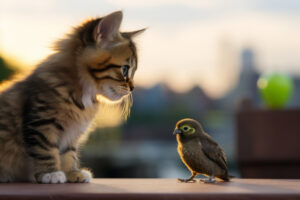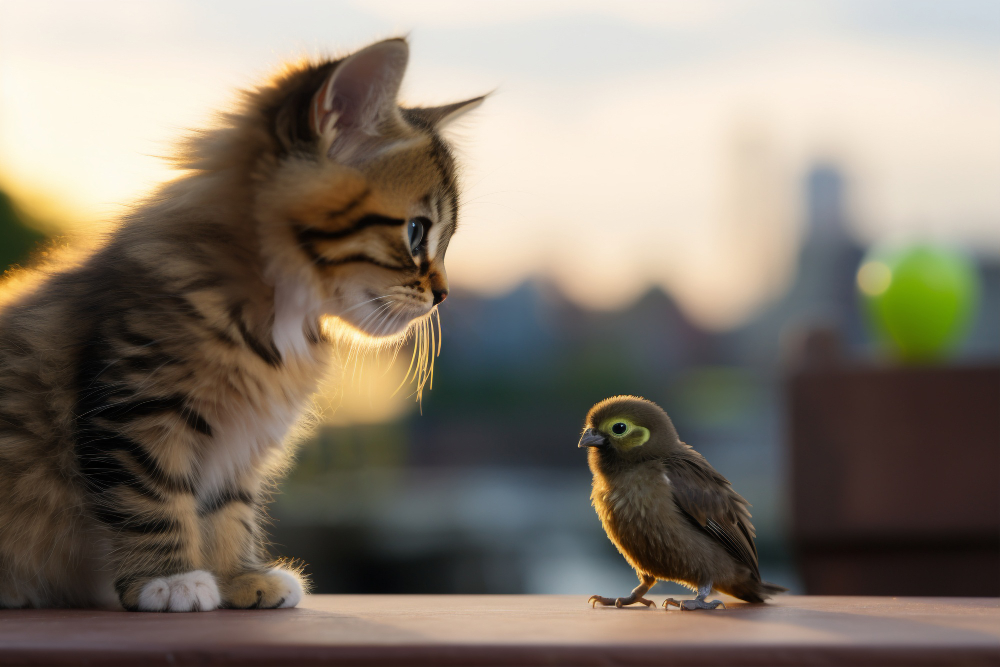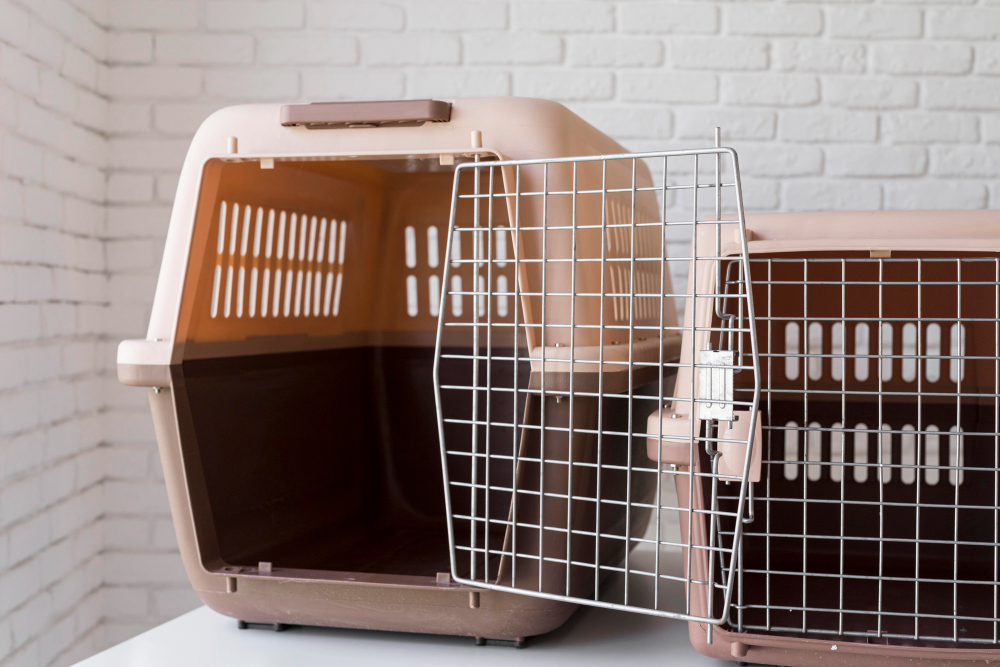Understanding Feline Behavior and Diet
They are indeed spectacular creatures, famous for having curious and awkward natures along with peculiar dietary habits. Probably every owner of a domesticated cat was in dilemma as to whether their pet feline will or will not eat a dead bird that is recently hanged. This can be rather puzzling in particular for those who love and care for their cats. In this paper, we will discuss why they do this, the effects on the cat as well as the environment, and what owners should know about their cat’s diet.

1. Introduction to Cats and Their Diet
Cats are obligate carnivores: they base their diet on meat. Although modern cats use food that is commercially produced, their ancestors are believed to have been hunters who killed small birds, rodents, and insects. The necessity of an appropriate diet will enable you to offer a balanced diet to your cat, which will ensure his health.
While this may be the case with wild cats, which are natural predators, domesticated cats rely on their instincts and agility to continue to hunt in the wild. They may not be able to actively hunt in the same ways, so their diets could vary possibly to become scavengers or eat dead animals.
2. The Natural Instincts of Cats
Feline instincts are strongly related to the cat behavior, among which are actions toward a dead bird that has just died. The strongly developed predatory instincts of a cat provoke such a beast to stalk and kill its prey. Even if a household cat is well-fed, the animal surely will catch and kill, since it is biologically predestined to do so.
Except for hunting, cats are scavengers. If they find a dead bird, their instincts might push them to dig into the same thing and even consume it. This habit forms their history of evolution because sometimes, in their habitats, scavenging acted as an added supplementary source of nutrients, especially when food was not so abundant.
3. Why Cats Eat Dead Birds
There are many reasons why cats might be seen eating recently dead birds:
Nutritional Needs
Even though domestic cats get their nutritional supplies through commercial cat food, they may be attracted to fresh meat based on its taste and texture. Dead birds provide sources of protein and other essential nutrients that basically fit with their instinctual diets.
Instinctual Behavior
Cats, as stated in the above proverb, are instinctive predators and scavengers. Upon seeing a dead bird, they can be tempted to go and see or even eat it when there is still food in the house.
Curiosity
Cats are animals that are naturally curious. A dead bird can attract them to sniff it, paw at it, or even eat it. It makes them draw close to anything that attracts them and explore their world generally.
4. Health risks posed by feeding dead birds
Although cats would likely feed on fresh dead birds, the process would come with a variety of health complications to a cat:
Diseases
Dead birds harbor several diseases that could be transferred to cats. For example, avian influenza and West Nile virus are among the highly known diseases affecting birds, which could be potentially dangerous to cats if they feed on infected carcasses.
Parasites
Dead birds may carry worms or fleas, which will then be transferred to your cat after ingestion. They are responsible for some of the health issues, including digestive problems and infections.
Toxins
If the bird died from poisoning or toxins that contaminated its environment, then eating the dead bird will poison your cat. In fact, you should consider all the risks associated with allowing your cat to consume dead animals that fall from the tree or are everywhere in the environment.
5. What If My Cat Ate a Dead Bird?
If you suspect that your cat may have eaten a dead bird, observe closely for signs of illness: vomiting, diarrhea, lethargy, and altered appetite. If you notice any of these signs, call your veterinarian immediately.
Ask Your Veterinarian
Consult your veterinarian if your cat manifests symptoms or you are worried with potential exposure to diseases or parasites. They could find better advice on the tests or treatments that should be taken in relation to your cat’s health status.
6.Prevent Such Situation from Happening in the Future
Develop actions that may prevent your cat from consuming dead birds. For possible ways on preventing your cat from eating dead birds check on the next section: 6. How to Prevent Your Cat from Eating Dead Birds
Take away the temptation of dead birds from your cat. This is difficult, but it is more important for them to follow your wishes rather than their health. Here are a few ways through which you can succeed:
Monitor Your Cat’s Outdoor Time
Monitor when your cat goes outside. Watching them will keep them from leaving your compound, therefore, from accessing the dead animals.
Consider a cation that would enable you to give your cat the freedom of having some time under the open sky, entirely free from killing potential hazards such as dead birds.
Provide Enrichment
To entertain your cat and engage it with its normal instincts while ensuring there is no potential risk to health, one can always do is provide toys with activities targeting their hunting behaviour. Interactive toys, puzzle feeders, and climbing structures will keep them busy.
Feed Them a Balanced Diet
Feed a balanced diet so that your cat is well-nourished. Well-fed cats may prefer not to forage for and eat dead birds.
7. Alternatives to Dead Birds
If your kitty enjoys a fresh meat flavor, here are some safe alternatives for your kitty to enjoy again:
Raw Diets
Others feed their cats raw diets, close to what the cat would do naturally in the wild-raw meats, organs, and bones. That should be monitored by a veterinarian or a pet nutritionist to avoid risks and ensure that it’s a well-balanced diet.
Commercial High-quality Cat Food
Offer high-quality cat food that contains real meat as the first ingredient. This may help curb your cat’s urge for proteins without having to expose them to taking dead meat.
Cooked Meat Bonus
Occasionally, you can use plain-cooked chicken or turkey as a treat to reinforce good behavior. Just make sure that the meat is plain with no salt or other additives that might harm your cat.
8. Frequently Asked Questions for Cats and Dead Birds
1. Should a cat eat dead birds?
Yes, as cats are natural hunting scavengers and should eat dead birds. However, there is a health risk involved in such behavior.
2. What if my cat eats a dead bird?
Watch your cat for changes in his or her behavior and see your veterinarian if there are symptoms displayed.
3. Can dead birds make the cats carry diseases?
Yes, dead birds may be carriers of diseases and parasites that increase the risks of health conditions in your cat.
4. How do I prevent my cat from eating dead birds?
Careful observation of time outdoors, safe outdoor environment, enrichment of the cat, ensuring he spends most of his time engaged rather than having time to go scavenging.
5. Are there safer options than a dead bird for my cat?
Yes, raw diets, high-quality commercial cat food, or even cooked meat treats are all safer alternatives.
6. How can you ensure that your cat will get a balanced diet?
Talk to your veterinarian or pet nutritionist to determine the correct diet that can meet the needs of your cat for specific nutrients.
SUMMARY
Such an instinct could lead to cats’ tendencies of eating recently dead birds as its final result. Still, the health risks associated with such an act of eating must be identified for the cat owners, and preventive measures taken for their furry friends. So, provide your cat with a balanced diet and an enriched environment that may assure its health and safety, which can be attained through supervision over outdoor activities.


